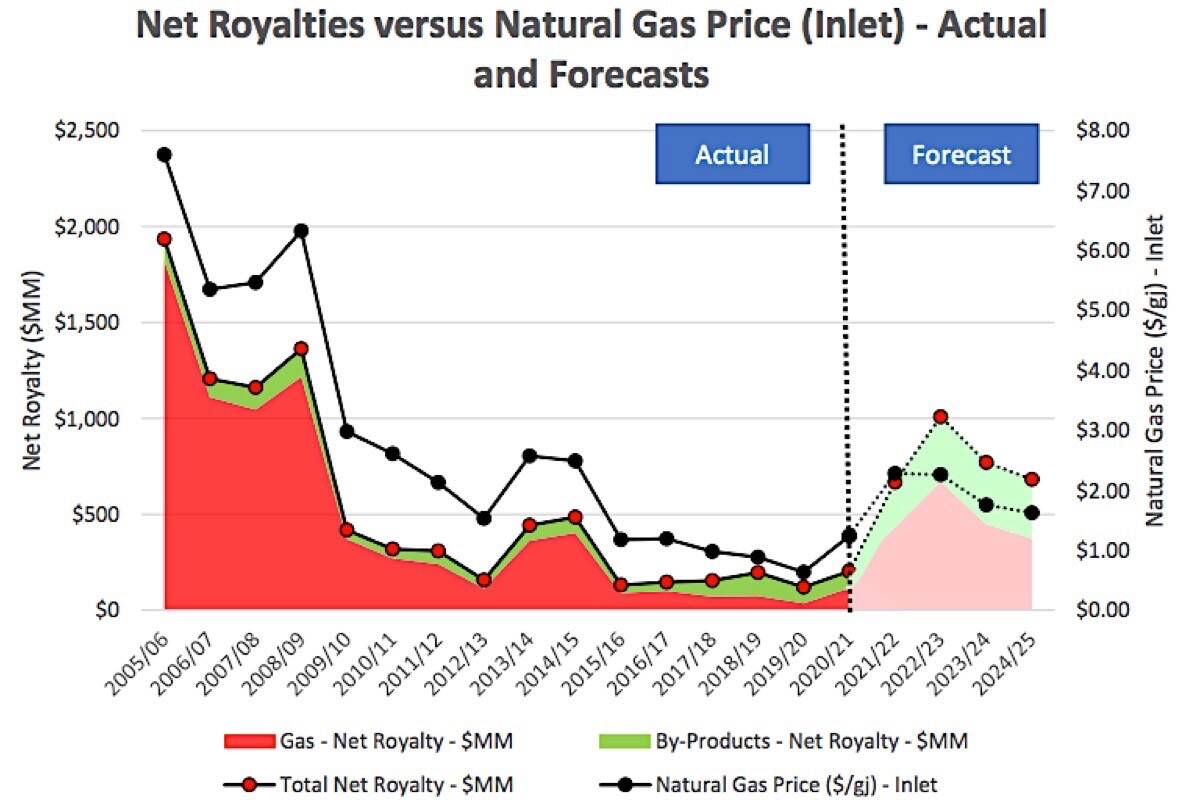B.C.’s natural gas royalties provided a revenue windfall from 2005 to 2009 that paid down debt and financed union bonuses to ensure labour peace for the 2010 Olympic Games, but since then the retail price for the public resource has at times fallen below the carbon tax charged on home gas bills.
With the LNG Canada export project at Kitimat moving towards completion, and other projects in the works, the province is forecasting that gas prices and royalties will continue a value recovery that began in 2020. Now B.C.’s NDP government faces a situation where 20 per cent of its greenhouse gas emissions already come from natural gas production, and the royalty system has not adapted to the shale gas revolution in northeastern B.C. fields.
The B.C. government is now inviting public comments on its overhaul of petroleum resource revenues, after a review by university economists showed an out-of-date system with a complex set of credits that has reduced royalty rates in recent years.
“For the first time in 30 years, British Columbians will be able to have their say on how we design a new system that aligns with our goals for economic development, a fair return on public resources and continued environmental protection,” Energy Minister Bruce Ralston said as he announced a public comment period that continues until Dec. 10.
The consultation includes a discussion paper that describes the problems identified by Simon Fraser University public policy professor Nancy Olewiler and the University of Calgary economist Jennifer Winter in September.
RELATED: B.C.’s biggest gas leak is revenue loss from Crown sales
RELATED: B.C. makes new resource deal after Treaty 8 violation
“The unequivocal conclusion of this assessment is that the current natural gas royalty framework is not meeting government’s goals and needs to be completely reformed,” the discussion paper says. “The authors see the underlying framework and the ‘piecemeal’ modifications since its inception, each designed to address issues within the industry and maintain fair, competitive markets, as out-of-step with current values, market conditions and technologies.”
In B.C.’s system, established in are royalty breaks for well age, low monthly production and deep drilling, with Crown-owned gas being sold for diminishing returns in a system disconnected from the actual value of the product.
Different rates for the methane gas and associated liquids and condensates produce a costly, complex system for both government and industry that assesses royalties on the raw resource entering processing plants, rather than on the value of refined products. The deep well credit program, created in 2003, has reduced provincial revenues further as the vast expansion of shale gas in North America has pushed the price down.
@tomfletcherbc
tfletcher@blackpress.ca
Like us on Facebook and follow us on Twitter.

